基于单片机的小区智能供水系统设计

1.无需注册登录,支付后按照提示操作即可获取该资料.
2.资料以网页介绍的为准,下载后不会有水印.资料仅供学习参考之用.
密 惠 保
基于单片机的小区智能供水系统设计(任务书,开题报告,论文14000字)
摘要
本文的设计目的是利用微处理器以及网络的实时性与准确性监控水箱液位高度。处于液位传感器检测下的液位值在设定的标准值之下时,系统会开启水泵为水箱补水至设定值,并且能够将各个时段的液位值输入数据库保存。
本次设计中通过微处理器STC89C52实时采集供水箱内的液位高度,经过模数转换器ADC0804处理采集信号,将数字信号传入单片机处理后的数据通过串口传入上位机监控,并将历史记录都保存进数据库中。
本次设计的最终结果是能够通过微处理器和网络实时监控水箱液位并及时调整其水位高度,使水箱时刻处于“饱和”状态。这种系统设计体现了自动化理念,相较于机械式测量,节省了大量人力。在当下这个自动化工业时代,本文中的设计符合时代要求,应普遍推广。
关键词:液位检测 单片机 数据库
Abstract
The purpose of this paper is to monitor the height of the tank level using real-time and accuracy of the microprocessor and the network. When the level of the water tank under the level sensor detection is lower than the set standard value, the system will start the water pump to fill the water tank to the set value, and can save the liquid level value of each time period into the database.
[资料来源:www.THINK58.com]
In this design, the liquid level in the water supply tank was collected in real time by the microprocessor STC89C52, and the ADC0804 was used to process the acquired signal. The digital signal was sent to the MCU and the processed data was transmitted to the host computer via the serial port for monitoring. Records are saved into the database.
The final result of this design is to be able to monitor the tank level in real time through the microprocessor and network and adjust its water level in time to make the tank “saturated” at all times. This system design embodies the concept of automation and saves a lot of manpower compared to mechanical measurements. In the current era of automation industry, the design in this article meets the requirements of the times and should be universally promoted.
Key Word:Level Detection,MCU,Database
研究内容
本文通过单片机处理液位传感器检测得信号(采集到模拟信号,在经过模数转换器转换之后输入到单片机内)并将其传入上位机实时显示、保存,实现一种能够实时测量供水箱水位的智能供水系统。这个系统包括了硬件电路设计;控制硬件动作的下位机程序部分;上位机的程序设计与数据库;人机交互界面的设计等。讨论了系统的合理设计方法,方案的选择,最后对目标系统进行了调试研究,得到预想的结果并进行分析。
[来源:http://www.think58.com]
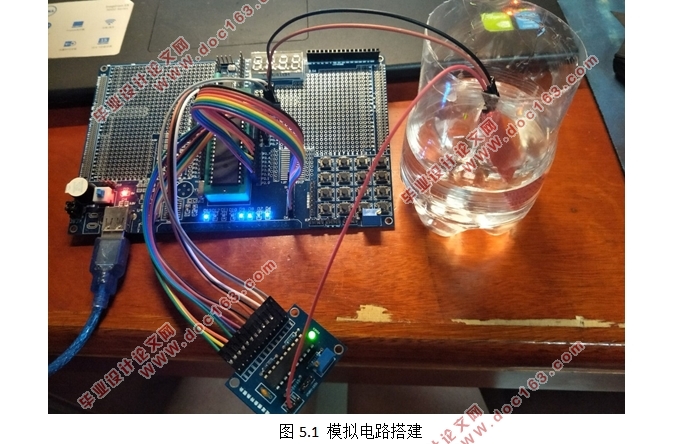
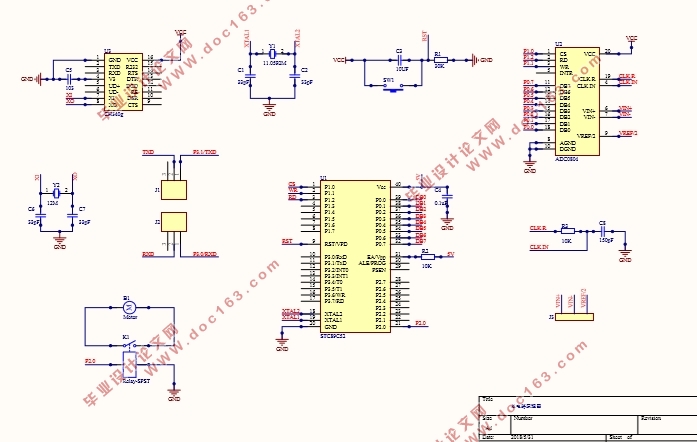
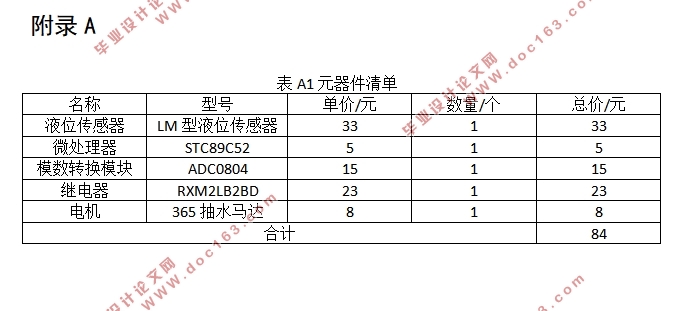
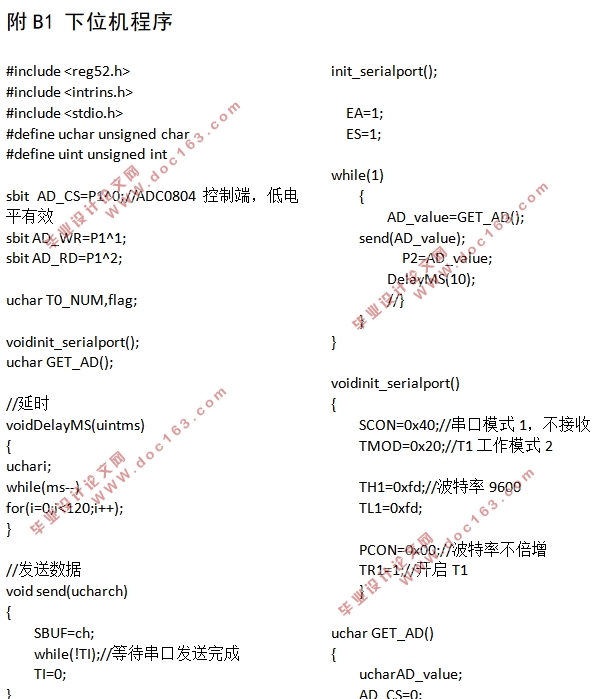
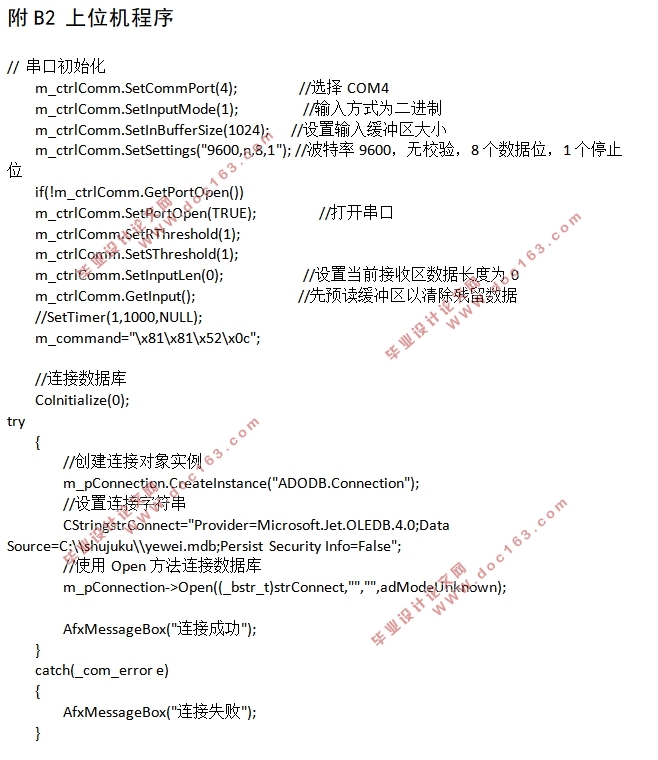
[资料来源:http://www.THINK58.com]
目录
第1章绪论 1
1.1 研究背景 1
1.2 研究目的意义 1
1.3 国内外现状 2
1.4 研究内容 2
第2章方案设计与选择 3
2.1 方案设计 3
2.2 方案论证与选择 3
第3章系统硬件设计 5
3.1 AD模数转换电路 5
3.1.1 ADC0804基本介绍 5
3.1.2 ADC0804工作时序 7
3.2 STC89C52单片机最小系统 8
3.2.1 STC89C52芯片 8
3.2.2 时钟电路 10
3.2.3 复位电路 11
3.2.4 P0口外接上拉电阻 12
3.2.5 EA/VPP引脚接高电平 12
3.3 自动控制部分电路 12
3.4 传感器选择 13
第4章系统软件设计 14
4.1 串口通信 14
4.1.1 上位机串口程序设计 15
4.1.2 下位机串口程序设计 17
4.2 数据库设计 19
4.2.1 ACCESS数据库 19
4.2.2 连接ACCESS数据库 19
4.3 交互界面设计 21
4.4 TeeChart绘图 21
第5章实物调试与仿真 24
第6章精度误差分析 25
第7章结语 26
7.1 总结 26
7.2 心得体会 26
7.3 工作展望 27
参考文献 28
附录A 29
附录B 30
附B1 下位机程序 30
附B2 上位机程序 32
致谢 36
[来源:http://www.think58.com]
